
There are some laws you don’t probably don’t need to know about unless you plan on wearing a suit of armor to English parliament, catching fish with your bare hands in the state of Indiana, or stealing used kitchen grease in North Carolina.
However, if you want enjoy life instead of fighting against your body, there are some you do . . . the laws that govern your circadian rhythm, for example.
If you’re thinking, “What laws?” – keep reading. When it comes to this subject, ignorance is not bliss. In fact, knowing the laws of bio-time – as sleep researcher Dr. Michael Breus calls it – can dramatically improve your mood, energy levels, the quality of your sleep, and overall enjoyment of life.
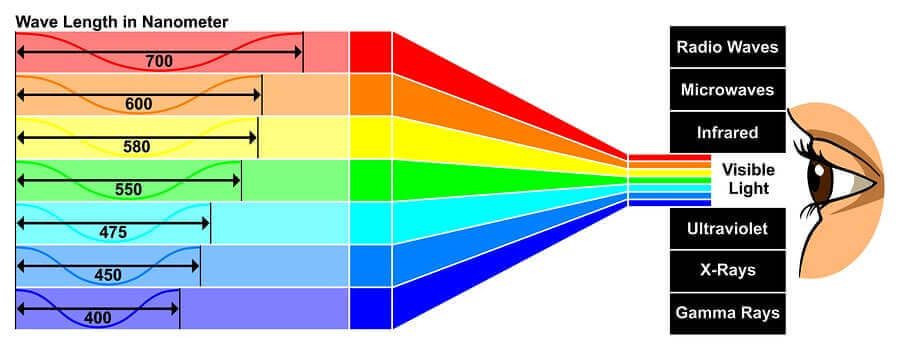
“The most disruptive event in the history of bio-time occurred on December 31, 1879,” wrote Dr. Breus, who is a Diplomate of the American Board of Sleep Medicine, Fellow of The American Academy of Sleep Medicine, and the author of The Power of When.
You see, before 1879 we all pretty much followed bio-time, but when Edison introduced the first commercially viable light bulb he did more than put a dent in the candle industry’s profits.
Light bulbs emit a fundamentally different type of light from firelight – blue spectrum light. In the natural world we see blue/green light in the daytime via sunlight, and red light in the evening via firelight. Our circadian rhythm uses these types of light to keep time – to tell our bodies when to be alert and when to become sleepy.
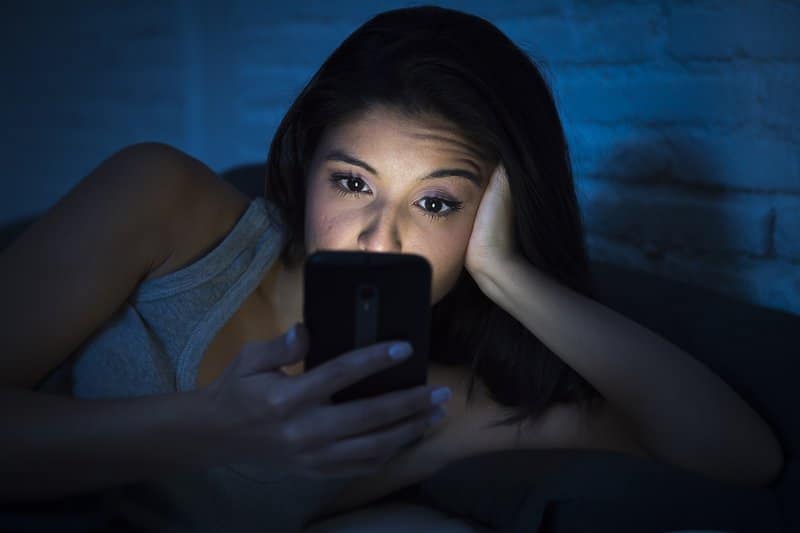
Using blue-light emitting devices such as light bulbs, smart phones, and t.v.’s during the nighttime hours scrambles our master timekeeper – the suprachiasmatic nucleus (SCN) – which affects our sleep/wake cycle and a whole lot of other internal clocks that follow the SCN.
Over the course of the day, your core temperature, blood pressure, cognition, hormonal flow, alertness, energy, digestion, hunger, metabolism, creativity, sociability, and athleticism, and your ability to heal, memorize and sleep, among many other functions, fluctuate according to and are governed by the commands of your inner clocks.” – Michael J. Breus, Ph.D., Diplomate of the American Board of Sleep Medicine, Fellow of The American Academy of Sleep Medicine, and author of The Power of When
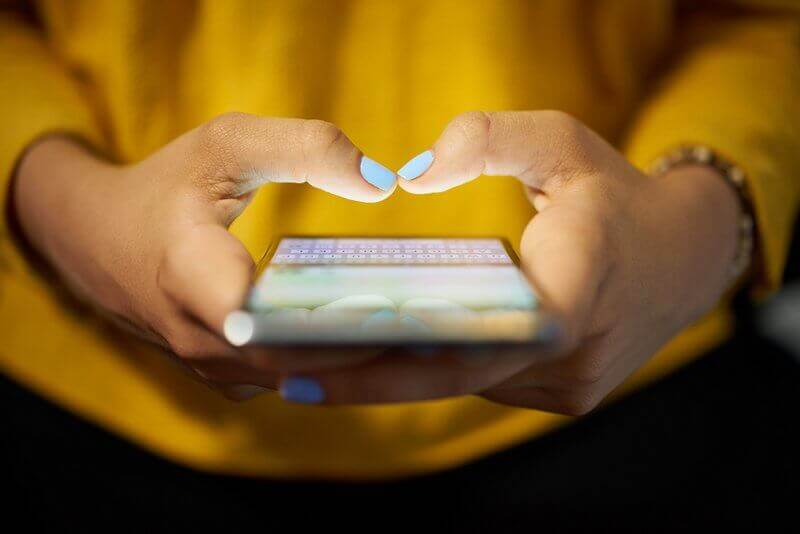
What are the effects of blue light exposure at night?
When we become chrono-misaligned, or out of sync with our biology, we can experience symptoms such as:
- insomnia and/or chronic sleep deprivation (source)
- hormonal imbalances
- adrenal fatigue
- anxiety and depression (source)
- a sense of being chronically tired or overwhelmed
- weight gain
- decreased REM sleep and overall reduced sleep quality (this study was done specifically on iPads, but applies to all blue-light emitting devices)
Even the American Medical Association has warned that high-intensity lights “emit unseen blue light that can disturb sleep rhythms and possibly increase the risk of serious health conditions, including cancer and cardiovascular disease,” writes The Washington Post. They’re talking about street light specifically in that warning, but the same principle applies to all blue-light emitting devices used at night.
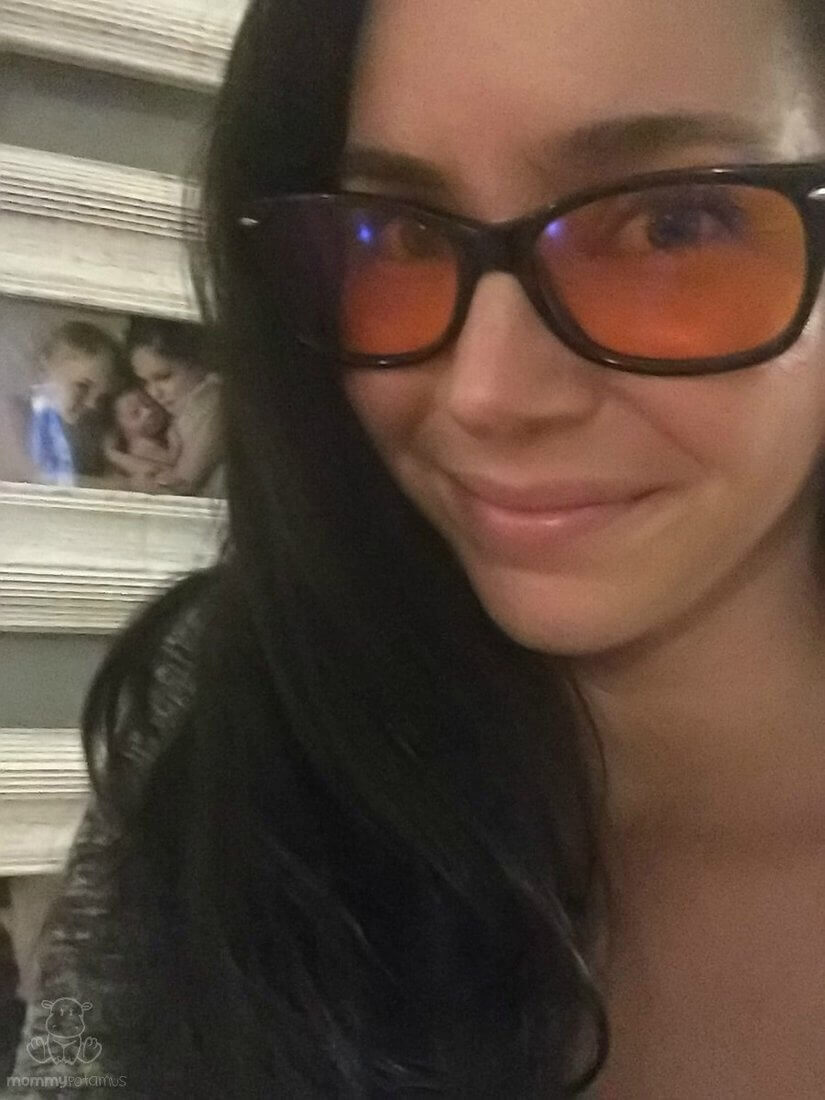
Can blue blocking glasses REALLY help realign your body clock?
In a word, YES. Researchers have found that blue-blocking glasses effectively “impede the capacity of bright light to suppress melatonin production.” (source)
In this study, researchers asked participants to wear either blue-blocking (amber) or yellow-tinted (blocking ultraviolet only) glasses for three hours prior to sleep over a three week period. Those that wore the blue-blocking glasses experienced a significant improvement in sleep and mood compared with those who wore the ultraviolet-blocking glasses. Other studies have found them helpful for improving the sleep of shift workers.
I first learned about blue-blocking glasses from my friend Katie of Wellness Mama, and have been using them for a few years now. The impact has been so significant that my entire family wears them now – including my littles. I’ve tried everything from the $9 Uvex ones to $80 options – these are the ones I use now because they’re affordable, comfortable, attractive, and lab tested.
Other Ways To Block Blue Light At Night
- Because most of us live in place where light pollution enters our windows at night, blackout curtains are helpful for creating a truly sleep-friendly environment. Fortunately, they don’t just come in black. Check out some of the colors that are available here.
- If you want to read by lamp light in bed at night – or you have a child that wants the light on as they fall asleep – consider a biologically compatible nighttime lamp such as this Sleep Ready Light or this Sleepy Baby Light.
- Install F.lux on your computer, phone or tablet – It’s a free software that removes blue hues from your screen at night. Download it here.
Next Up: Realigning Your Body Clock With Bright Light
Managing our light exposure is the most powerful tool we have to get deep, restful sleep. Blocking blue light at biologically inappropriate times (nighttime hours) is just half of that equation – the other is getting about the other is getting about 30-60 minutes of bright light exposure in the early morning.
For most of us that’s not really practical, but I’ve discussed some workarounds in 18 Science-Backed Sleep Tips.

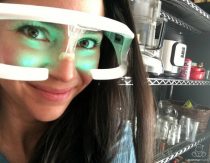
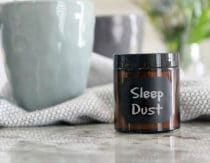


Great article!
I have F.lux installed on my laptop & PC. It is not compatible with Android devices yet, so I use the Twilight app on my Android devices.
I went onto the intellibed website and used the promo code, but I don’t see anything about the free gift options.
They will follow up with you personally. They have amazing customer service and make sure you’re well taken care of before and after your bed arrives. 🙂
Better options than jailbreaking your iOS device which voids the warranty and leaves it vulnerable
https://www.quora.com/What-sleep-improvement-apps-for-iOS-filter-blue-light-and-dont-require-jailbreaking
Will any amber or yellow light bulb work or does it have to say on the package that it is low in blue light? Thanks!
I too am curious of the answer? Both night time lightbulbs that are linked to here go to LED ones….I have read that only incandescent are the safe ones and I was able to find a pack of 4 red incandescent bulbs for $10….would those work or it has to be specificly states “blocks blue light”?
I can;t get the F.lux to download. How do I do it?
I just found something in my pc’s screen settings called night light. You can turn it on there.
While I haven’t used the blue light blocking glasses you mentioned, I did end up getting an iPhone filter. Oh and you bet I put them on both my teenage daughters’ phones, since I know they stay up late texting their friends (Instagram…whatever kids do these days). What are your thoughts on using a blue light filter on each device rather than wearing the glasses?
By the way I LOVE your blog name 🙂
I think it’s better than not using a screen filter but it doesn’t address other sources of blue light such as light bulbs.
The glasses you recommend are not available in amazon now, can you share other suggestion? Thanks for the great article!
Looks like they are back in stock 🙂
Blue light has a high energy level and emitting visible light that’s observed from the human eye and over time, short wavelength, can be harmful. It is always recommended to use the blue light filter for eye care.
Due to daily blue light exposure, our human eyes are damaging daily. Its true that we can’t avoid use of mobile phone, laptop, etc. but we can protect our eyes with blue light filter glasses.
Thank you for sharing this post.
Few months before I was facing eye strain, eye dryness. But last month I bought Oiamik blue light filter glasses and now I am feeling very comfortable and stress free.
Blue light blocking glasses is a need for today’s generation.
Where can I find the right kind of incandescent light bulbs? Does anyone have a link?
One of the adds on your page is a woman sprawled across the page in her underwear. It would be great if your site was family-friendly and it was without female objectification.
What was the ad for? Ads are typically selected for each user based on search history but I set the guidelines and they are definitely supposed to be family friendly. Sometimes something does slip through though and I can block it if I know what company it’s from.